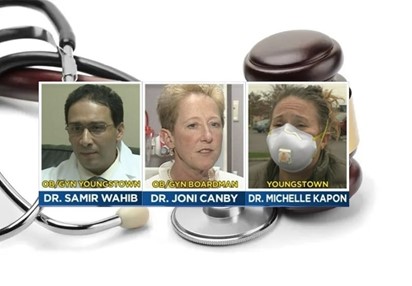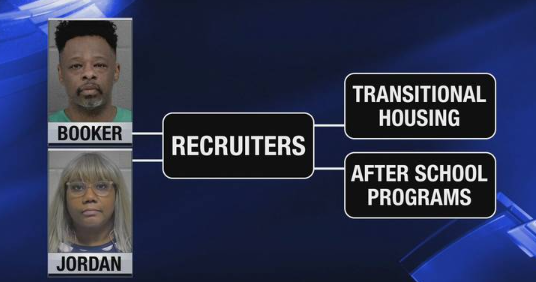MM Curator summary
The article below has been highlighted and summarized by our research team. It is provided here for member convenience as part of our Curator service.
[MM Curator Summary]: After GA won its court case, Ohio and others are inspired.
Clipped from: https://www.theregreview.org/2023/07/22/saturday-seminar-states-renew-push-for-medicaid-work-requirements/
Scholars evaluate the impact of work requirements on Medicaid beneficiaries.
About one in five Americans receive health coverage through Medicaid, making it the largest source of health coverage in the United States. Should states make eligibility for Medicaid contingent on employment?
The institution of work requirements for federal safety net programs such as Medicaid emerged as a point of debate during recent federal debt ceiling negotiations. House Republicans proposed expanding work requirements for those receiving food assistance through the Supplemental Nutrition Assistance Program (SNAP) or cash assistance through the Temporary Assistance for Needy Families (TANF) program. House Republicans also proposed new work requirements for those receiving health care through Medicaid.
In a decision that has been criticized by some congressional Democrats, President Biden agreed to expand existing SNAP and TANF work requirements in exchange for a two-year suspension of the debt ceiling. A Medicaid provision that would have required Medicaid recipients to work, volunteer, or participate in job training for at least 80 hours per month to be eligible for coverage did not survive negotiations. Moreover, exceptions built into the debt ceiling agreement will reduce the number of recipients adversely affected by the deal.
Yet beyond Capitol Hill, state officials are leading a renewed push for Medicaid work requirements.
Although the federal government provides states with Medicaid funds, states administer the program. Section 1115 of the Social Security Act grants states flexibility to tailor their programs to meet residents’ needs.
Under Section 1115, states can submit waiver requests to the U.S. Department of Health and Human Services (HHS) to amend eligibility requirements. The Health and Human Services Secretary can approve a waiver request if a state program supports Medicaid’s overarching goals of providing health coverage and improving health outcomes for low-income individuals.
Prior to the Trump Administration, no states had ever received Section 1115 waivers to tie the receipt of Medicaid support to employment. But beginning in 2017, President Trump’s top health officials encouraged states to align their Medicaid requirements with the work conditions of other safety net programs, such as TANF and SNAP, and HHS granted Section 1115 waiver requests to 12 states that sought to add work requirements.
Health care advocates and civil rights groups sued the Trump Administration, successfully challenging the approvals of Section 1115 waivers in Kansas and Arkansas. Because the courts found that work requirements contravened Medicaid program goals, the lawsuits prevented several states from implementing work requirements.
In 2021, President Biden revoked Section 1115 waiver approvals for several of the states that sought to attach work requirements to Medicaid. Only one state—Georgia—sued the Biden Administration in response. Judge Lisa G. Wood of the Southern District of Georgia sided with the state, finding that the Administration failed to consider whether rescinding Georgia’s program would result in less Medicaid coverage.
Judge Wood’s decision cleared the way for Georgia’s Pathways to Coverage Program—a limited Medicaid expansion program that covers a subset of low-income adults who meet work requirements and which began enrollment on July 1 of this year.
Currently, Georgia is the only state to condition Medicaid receipt on employment.
In discussion of work requirements, many scholars argue that the requirements impose barriers to health coverage and fail to increase employment rates among Medicaid enrollees. Indeed, the Georgia Department of Community Health revealed that nearly 100,000 low-income Georgians lost health coverage after the state reassessed their eligibility in advance of the new coverage program.
In addition, the debt ceiling negotiations revived long-standing policy disagreements over the role of safety net programs and the federal government’s responsibility toward low-income Americans. Should Medicaid be understood as a public assistance program that nevertheless encourages employment? Or is it a fundamental entitlement that provides access to necessary and affordable health care?
In this week’s Saturday Seminar, scholars evaluate the effects of work requirements on Medicaid enrollment and explore why efforts to attach work requirements to Medicaid eligibility persist.
- Work requirements have little effect on employment rates among Medicaid beneficiaries, according to a report from the Congressional Budget Office (CBO). The CBO report
explains that work requirements tend to reduce enrollees’ benefits more than they increase their earnings. The report examines Arkansas’s Medicaid work requirement, granted through a Section 1115 waiver, finding that 23 percent of Medicaid recipients subject to work requirements lost health coverage in the months before the court struck down Arkansas’s waiver approval. CBO also finds that the work requirements roughly doubled the number of adults in the state who reported having serious difficulties affording their medical bills.
- In an article in the Temple Law Review, Nicholas P. Terry of the Indiana University Robert H. McKinney School of Law identifies a correlation between individuals with opioid use disorder and Medicaid eligibility. Terry argues that states that have used Section 1115 waivers to condition Medicaid benefits on employment have worse health outcomes for enrolled individuals with opioid use disorder. Terry contends that work requirements invert the relationship between work and health because the ability to work is necessarily a product of good health. According to Terry, individuals with opioid use disorder often have serious medical conditions, such as disabilities, that prevent them from being employed, and because these individuals frequently cycle through treatment, recovery, and relapse, they often cannot qualify for work requirement exemptions.
- A Northwestern University Law Review
article by Andrew Hammond of Indiana University Maurer School of Law explores why Medicaid and SNAP persist despite conservatives’ repeated efforts to dismantle them. Hammond contends that the Trump Administration effectively changed substantive welfare law—that is, the rules about who receives benefits and how much— by increasing administrative burdens on public benefits applicants, such as through work requirements and drug tests. Yet Hammond maintains that the Administrative Procedure Act provides some protections against the dismantling of anti-poverty programs, and that litigation remains an effective tool to protect access to health coverage and food assistance.
- In a working paper issued by the National Bureau of Economic Research, Laura Dague and Benjamin D. Ukert of Texas A&M University document current minimum eligibility and enrollment requirements for Medicaid. Dague and Ukert provide an overview of research on “disenrollment policies,” which are policies that allow states to stop coverage for individuals who purportedly fail to meet eligibility requirements. For example, when Arkansas introduced its short-lived Medicaid work requirement in 2018, the state automatically disenrolled more than 17,000 people who failed to report the minimum monthly work requirement, observe Dague and Ukert. They echo past research findings that disenrollment likely amounted to an increase in the uninsured rate among low-income Arkansans.
- In an article published in the Journal of Health and Life Sciences Law, Sarah Somers and Jane Perkins of the National Health Law Program
argue that Medicaid work requirements often carry racial overtones. Somers and Perkins cite as an example a Michigan bill that sought to impose work requirements on Medicaid beneficiaries in majority Black cities such as Flint and Detroit, but would have exempted residents in other counties. According to Somers and Perkins, prior studies confirm that states with higher Black populations are less likely to expand Medicaid eligibility. Yet Somers and Perkins contend that Medicaid has the potential to advance racial equity by addressing health disparities. Somers and Perkins argue that states that have expanded Medicaid coverage have reduced disparities in uninsured rates between white and Black adults, improved Black adults’ access to primary care, and lowered Black patients’ mortality rates.
- In an article in the Yale Journal of Health Policy, Law, and Ethics, Kristen Underhill of Cornell Law School shows how laws communicate information about societal norms and public policy. Underhill interviewed Medicaid participants in Kentucky, which, at the time, had an approved Section 1115 waiver request conditioning coverage on employment. Drawing on these interviews, she seeks to explain how Medicaid enrollees perceived work requirements as part of the state’s policy goals. Underhill finds that many interviewees who supported the work conditions believed that, although their own participation in Medicaid was a matter of circumstance, other participants were unwilling to work and took “advantage” of Medicaid. Conversely, Underhill finds that some interviewees criticized Kentucky’s Medicaid work requirements as embodying state officials’ unrealistic expectations for beneficiaries, claiming that racial animus and punitive intent provided the basis for the state’s policy choice.
The Saturday Seminar is a weekly feature that aims to put into written form the kind of content that would be conveyed in a live seminar involving regulatory experts. Each week, The Regulatory Review publishes a brief overview of a selected regulatory topic and then distills recent research and scholarly writing on that topic.


